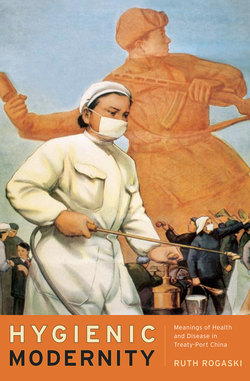Описание книги
Placing meanings of health and disease at the center of modern Chinese consciousness, Ruth Rogaski reveals how hygiene became a crucial element in the formulation of Chinese modernity in the nineteenth and twentieth centuries. Rogaski focuses on multiple manifestations across time of a single Chinese concept, <I>weisheng</I>—which has been rendered into English as «hygiene,» «sanitary,» «health,» or «public health»—as it emerged in the complex treaty-port environment of Tianjin. Before the late nineteenth century, <I>weisheng </I>was associated with diverse regimens of diet, meditation, and self-medication. <I>Hygienic Modernity </I>reveals how meanings of <I>weisheng, </I>with the arrival of violent imperialism, shifted from Chinese cosmology to encompass such ideas as national sovereignty, laboratory knowledge, the cleanliness of bodies, and the fitness of races: categories in which the Chinese were often deemed lacking by foreign observers and Chinese elites alike.
